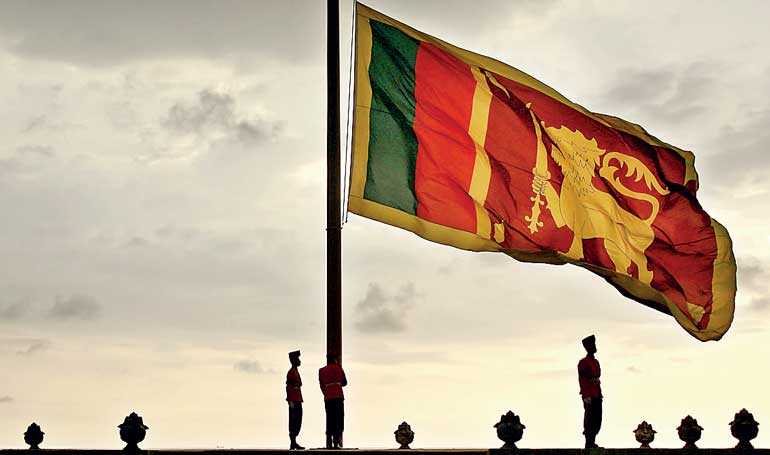Saturday Feb 21, 2026
Saturday Feb 21, 2026
Monday, 29 October 2018 00:15 - - {{hitsCtrl.values.hits}}

Once again, dramatic political events in Colombo remind us that branding is primarily an internal project. Nine years after the end of the civil war, a monumental failure of leadership has left us looking inward rather than finding our own place in the world. Instead of imagining our nation looking upward and outward, we find ourselves swinging back-and-forth and side-to-side like a pendulum, lurching from crisis to crisis, with leaders who continue to expand our limits rather than our opportunities. 
In 2009, Mahinda Rajapaksa had an opportunity available to few other Sri Lankan leaders to define our national story. Handled right, Rajapaksa could have reconciled the needs of a wide range of national actors but chose, instead, the much less difficult path of Sinhala cultural exclusivity. Ranil Wickremesinghe’s Yahapalanaya Government was given the same opportunity in 2015 but quickly squandered its political capital.
All this has left us without a national narrative of who we are, where we come from, and what our shared dream of the future could look like – a serious handicap to any country that urgently needs to drive progress after years of anomy, upheaval and crisis.
Consider, for example, the opposition to Donald Trump. The protests by Americans who are organizing change on the ground are based on a clearly defined collective purpose that has guided the American people since the days of their Founding Fathers – that the United States was, and continues to be, a nation founded by the people, for the people, that advances equal citizens with an equal claim to dignity and public respect.
“We hold these truths to be self-evident,” the American Declaration of Independence states, “that all men are created equal, that they are endowed by their Creator with inalienable Rights, that among these are Life, Liberty and the pursuit of Happiness.” This purpose illuminates the supreme law of the land, the American constitution, and continues to define the clarity and resiliency of the brand, USA – Trump or no Trump. Sri Lanka lacks a comparable American Dream.
Countries like America that have developed resilient national institutions – and thereafter exported their national brand overseas – first developed an internal consensus about how they should frame their national consciousness and design their political institutions: that is, what they should stand for – their purpose – and how they should be ruled. This shared sense of identity was crucial to supplying the coherence and purpose that was necessary for their national and global ambitions.
Sometimes – just like Sri Lanka’s own civil war of the past 30 years – it took wars or revolutions to settle contested issues of identity. For example, both slavery and involuntary servitude were abolished through the Thirteenth, Fourteenth, and Fifteenth amendments to the constitution at the end of the American civil war in 1865.
Portugal battled Castile between 1383-1411 as it resisted attempts by Spain to incorporate it into an Iberian super-state. Only thereafter did it develop a truly global capacity to export its brand to the whole world, including sailing to Ceylon. Christian Spain’s own perceived sense of nationhood came with the reconquering of Granada in 1492, which ended seven hundred years of Moorish rule in the Iberian peninsula. Christopher Columbus sailed to the Americas in that same year.
Closer to home, the Meiji Restoration of 1868 resulted in the downfall of the Tokugawa Shogunate as Japan identified itself with the western world and adopted an expansionist policy towards its Asian neighbours. Each of these examples – and there are many others – show how essential the precondition for a national story was – and remains – to a country’s ambitions.
Without a leadership capability that defines an inspiring and consensual narrative, a country cannot enjoy stability at home, nor can it successfully export its national brand overseas, or, for that matter, convincingly attract people to its shores.
(The writer heads the Interbrand
Sri Lanka office.)